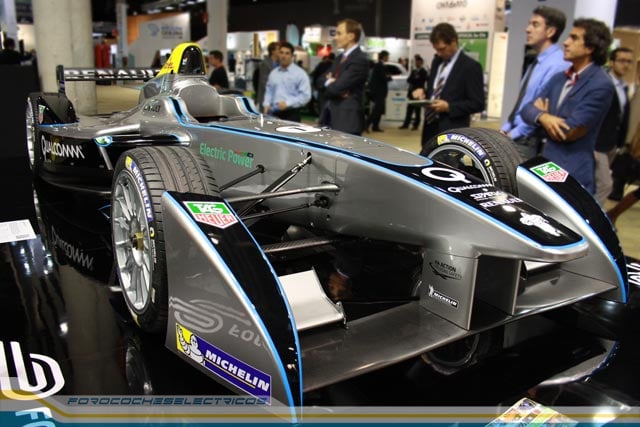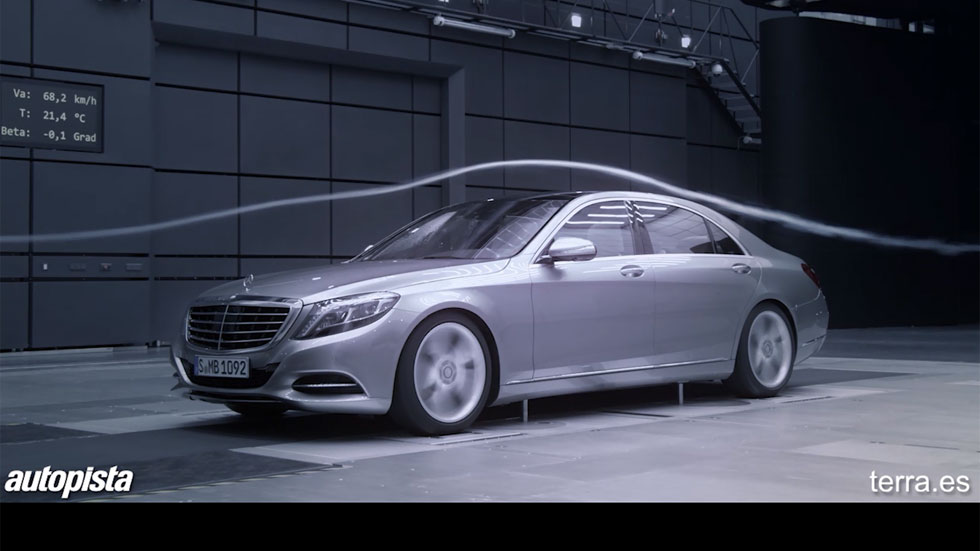… Eso sí, a su manera.
http://www.marcamotor.com/2013/12/23/noticias/1387814443.html

http://www.marcamotor.com/2013/12/23/noticias/1387807783.html
Me recuerda un anuncio de mi época en la que la pugna era entre VW y Alfa Romeo en busca del compacto más deportivo.
La publicidad en carteles decía : ‘ Tú qué prefieres, ¿el golf o las carreras?’
Si la noticia fuera cierta, estaríamos ante un antes y un después de esta competición.
Os invito a leer el artículo de forococheselectricos.com
http://forococheselectricos.com/2013/12

¡Quién no querría tener un M3 de cualquier generación en su garaje!
Los nuevos M3 y M4 (versión de 2 puertas) ya están aquí.
Su novedad principal es el downsizing en sus motores. Pasan de una arquitectura V8 atmosférica de 4 litros de cilindrada a unos ‘simples V6 de 3 litros sobrealimentados por dos turbocompresores (uno por bancada de cilindros). Mantienen aproximadamente la misma potencia, mejora la curva de par, reducen los consumos y reducen el peso total del conjunto. En definitiva un giro hacia la eficiencia. (¿Qué está haciendo la F1?)
Nuestros colegas de Coches.net han realizado un estupendo reportaje que os invito a leer.
http://www.coches.net/nuevo-bmw-m3-m4?xtor=EPR-27-[BOLETIN]

Imagen de www.bmw.com
Hola Blogueros.
Os recomiendo este vídeo publicado por Autopista.es donde su Director Técnico, Miguel García Puente nos explica la importancia de la aerodinámica en los turismos.
http://www.autopista.es/reportajes/articulo/como-funciona-aerodinamica-coche-97724

Otra revista interesante
http://viewer.zmags.com/publication/27b7f8ad#/27b7f8ad/1
Y el noticiario de engine testing international:
http://viewer.zmags.com/publication/27b7f8ad#/27b7f8ad/1
Con la noticia de los nuevos motores diesel de BMW que usará Toyota en su modelo VERSO

The Verso 1.6 D-4D compact MPV will be the first Toyota equipped with an engine supplied by the BMW Group under a contract agreed by the manufacturers two years ago.
The addition of the engine, which offers a power output of 112ps at 4,000rpm, 270Nm of torque from 1,750-2,250rpm and produces 119g/km of CO2, to the range early in 2014 will increase the number of powertrains available to Verso customers in the UK to four, which includes the 2-liter D-4D and 1.6 Valvematic and 1.8 Valvematic gasoline derivatives.
Didier Leroy, senior managing officer of Toyota Motor Corporation, and president and CEO of Toyota Motor Europe (TME), said: “At Toyota, we believe that tackling environmental challenges facing our industry will require more than one approach. Hybrid is at the core of our strategy towards sustainable mobility, but we also see a role for clean diesel in Europe.
“Working together with an industry leader like the BMW Group allows us to benefit from economies of scale to reduce development costs as well as improve our time-to-market.”
The R&D team at Toyota’s European technical centre in Belgium led the development of the Verso 1.6 D-4D, which involved producing a number of new components, including engine mounts, a dual-mass flywheel, a new gearbox housing and gearing and a stop/start system to further improve efficiency and reduce emissions.
Production of the Verso 1.6 D-4D will begin in January 2014 at Toyota Motor Manufacturing Turkey’s Adapazari plant, the center for all Verso manufacturing.
Sourcing diesel engines is one aspect of a wider collaboration between Toyota and the BMW Group, under which the companies have announced plans to co-develop a fuel cell system; conduct a feasibility study for the joint development of a sports car platform; work together on creating lightweight vehicle body technologies; and undertake joint research into lithium-air batteries.
Os adjuntamos un link a una revista sobre vehículo eléctrico más que interesante.
Os animo a suscribiros.
http://www.ukipme.com/pub-automotive.php?mag=4

Motoryviajes.com nos ayuda con nuestro tiempo de ocio para el fin de semana.
ESCAPADAS http://motoryviajes.com/escapadas/
DESTINOS http://motoryviajes.com/destinos/
ALOJAMIENTOS http://motoryviajes.com/alojamiento/
GASTRONOMÍA http://motoryviajes.com/gastronomia/
Y ahora también OFERTAS http://motoryviajes.com/buscadores/ofertas-de-viajes/
¡ Buen finde a todos !
De la revista ‘Automotive Testing’ nos llega la siguiente noticia:
Volkswagen Group increases R&D investment

The Volkswagen Group has announced an ambitious plan to invest a total of €84.2bn in its automotive division over the coming five years.
Volkswagen has stated that over two-thirds of the total investment will ‘flow into increasingly efficient vehicles, drives and technologies, as well as environmentally friendly production’.
This means that investments in property, plant and equipment in the Automotive Division will amount to around €63.4 billion over the stated period. Average annual investments in property, plant and equipment will be around €0.5 billion less than in the planning approved in 2012 for the period from 2013 to 2015. “In times like these, our disciplined cost and investment management will remain a cornerstone of our activities,” said Prof. Dr. Martin Winterkorn, chairman of the board of management of Volkswagen Aktiengesellschaft.
Volkswagen’s figures break down further, into €41.2 billion being set aside for the modernization and extension of its product ranges, for all its brands. The main focus will be on new vehicles and successor models in almost all vehicle classes.
The high level of investment is also being cited as due to the changeover to Euro 6, which means completely revamping the Group’s range of vehicles and engines. This is in addition to Volkswagen’s continued research and development of its hybrid and electric motors.
This long-term plan comes amidst news that Volkswagen Group is already the world’s largest private sector R&D investor. Based on a sample of over 2,000 international companies for the 2012 year, Volkswagen Group’s R&D costs were €9.5bn – up from €7.2bn in 2011.
“For us, the latest findings from the European Commission’s study are further confirmation of our strategy,” explained Prof. Dr. Martin Winterkorn, CEO of Volkswagen Aktiengesellschaf. “ Faced with tough global competition, Europe must focus more systematically on environmentally-friendly technologies and competitive products. Investment in research and development is both the foundation and the prerequisite for that, which is why the Volkswagen Group will continue with targeted investment in its innovative strength. We will remain a powerhouse of ideas for the European automotive industry.”